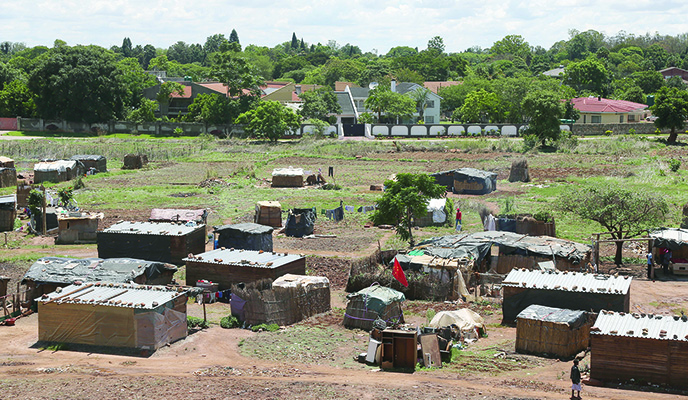
Something is not right in the world we live in today. It is now a world of extreme contrasts, a world where social and economic relations are defined by poverty and wealth and no longer by humanity.
Develop me: Tapiwa Gomo
The dynamics have become extreme, reaching a stage of rupture.
The rich continue to be richer and less generous, while the poor continue to be poorer and more vulnerable.
Money continues to accumulate in the hands of a few and to favour the powerful, with less trickling down to the poor.
The wider the gap becomes, the more the world draws closer to breaking or a collision point.
Either way, the world of the rich and the poor will meet and reconcile through struggle or negotiations.
- Chamisa under fire over US$120K donation
- Mavhunga puts DeMbare into Chibuku quarterfinals
- Pension funds bet on Cabora Bassa oilfields
- Councils defy govt fire tender directive
Keep Reading
Perhaps that is when we will learn that humanity needs itself than divide itself.
Just imagine, as Matobo was hosting a big bash for President Robert Mugabe’s birthday, some Zimbabweans, who escaped poverty into South Africa, were being bashed during anti-immigrant protests in Pretoria.
I guess some of the victims of the violent xenophobia attacks were reminded that if some people can contribute such a huge amount of money towards a birthday bash, it is a sign that there is no poverty in Zimbabwe.
Certainly, 93 years is a huge milestone and it calls for celebrations.
Such celebrations are more memorable when they include the poor, or rather shared with the poor and the needy.
It must be a painful situation for those poor families, who lost their property due to Cyclone Dineo and are hoping that the government will bail them out.
These are two worlds — one eating cake, the other, sinking in the mud.
I guess those affected by Cyclone Dineo are also imagining that if their country was Tanzania and their President was John Magufuli, maybe the birthday contributions would have been diverted towards assisting the people, who suffered the wrath of the cyclone.
Magufuli has demonstrated that it is possible to cancel or defer lavish celebrations, and allocate the resources towards public hospitals or other worthy causes.
It is natural that people look up to their leaders for leadership in trying times like these.
But this is Zimbabwe, where praising the leader and paying dues opens up more opportunities for the rich and the powerful.
It is not only in Zimbabwe, where the opulent shun their poorer groups. In general and globally, the rich-poor divide is widening to extremely obscene proportions. The number of billionaires in the world is higher than ever before.
By the end of 2015, they were nearly 2 500 people with a minimum balance of $1 billion as their net worth. These people’s net worth put together is a whopping $7,7 trillion or nearly the gross domestic product (GDP) of China or nearly three times the GDP of the United Kingdom or France.
One of the most common and traditionally known billionaire hobbies is giving back to society and helping alleviate human suffering.
However, not every billionaire these days believes in philanthropy and most would rather use it to evade paying taxes and to further their money-making opportunities.
What with United States President Donald Trump being at the helm of the world’s biggest economy that spends nearly $2 billion per day on defence.
This level of opulence is happening at a critical moment in our lives, where the world faces a time of huge global suffering.
The scale of deprivation and poverty today is greater than at any time since 1945 at the end of the destructive World War Two.
More people are falling and trapped into a cycle of vulnerability and poverty, while the wealthy are becoming more frugal to helping humanity, including denying funding to worthy causes such as initiative to curtail the impact of climate change.
Nearly half a dozen countries in the world today are facing the threat of famine — a situation, which we thought would have been a thing of the past.
The sad part of this is that when famine is finally declared in those countries hundreds of thousands of lives would have been lost due to preventable causes.
Just a little bit of financial contributions would have stopped the unnecessary loss of lives.
But then, it is a world fast becoming selfish, looking for self-enrichment rather than saving humanity.
It is humanity neglecting itself.
Tapiwa Gomo is a development consultant based in Pretoria, South Africa












